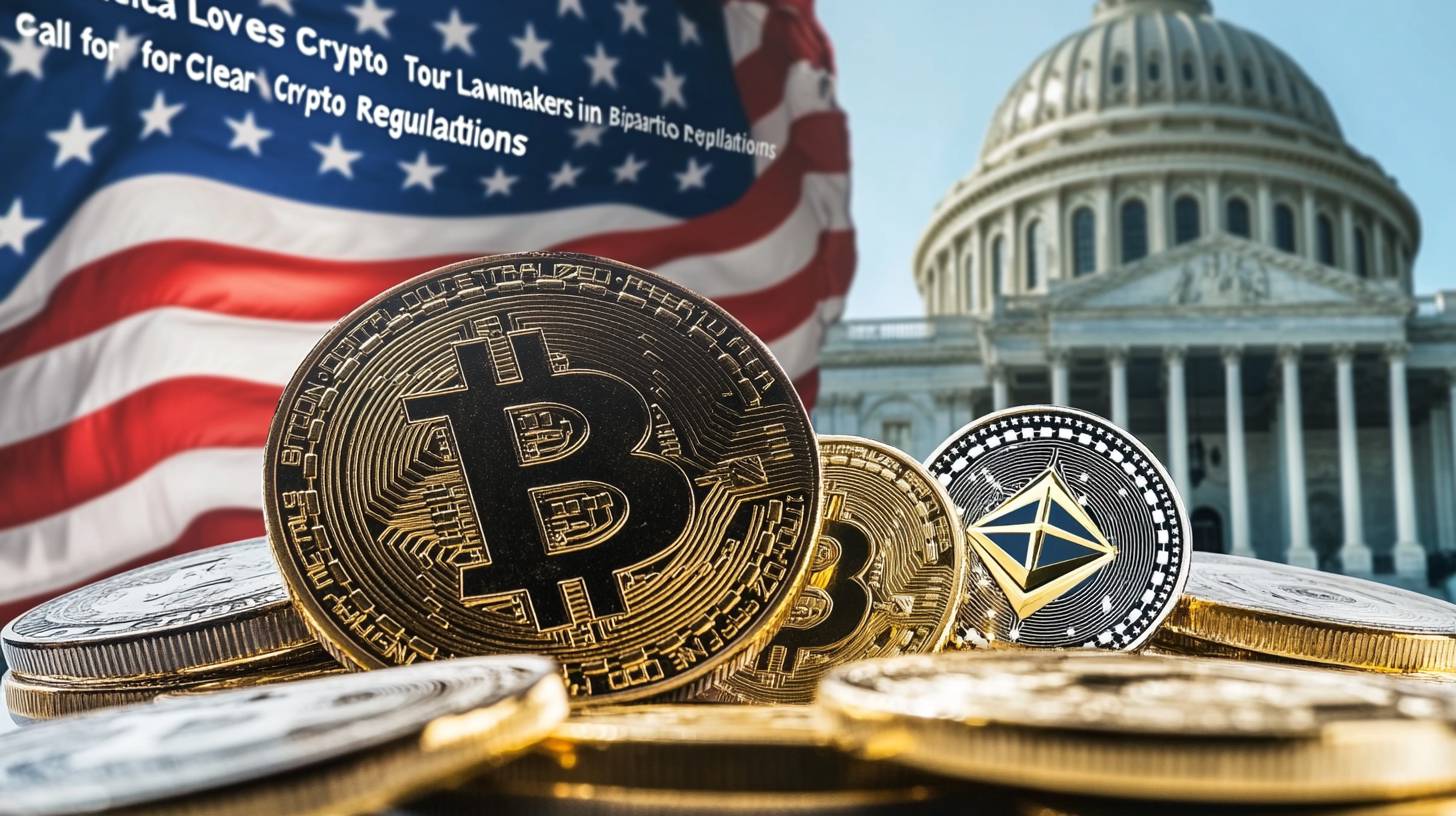
bipartisan enthusiasm for cryptocurrency is on the rise
For Australian crypto supporters observing from a distance, the U.S. election may create ripples in the global market. The regulatory landscape in the U.S. frequently influences other nations, including Australia, where crypto regulation continues to develop. A more crypto-friendly administration in the U.S. might result in a more welcoming global regulatory environment, which could advantage Australian investors and businesses in the sector.
In an unusual show of solidarity, speakers at the America Loves Crypto tour held in Washington, D.C. highlighted the increasing bipartisan enthusiasm for cryptocurrency across the United States. Coinbase CEO Brian Armstrong along with Congressman Wiley Nickel (D-NC) both emphasised the necessity of nurturing innovation within the crypto sector, with Nickel pointing out that bipartisan effort is crucial to prevent hindering progress in Washington.
Furthermore, the political engagement of the crypto community in the U.S. could potentially serve as a blueprint for similar initiatives in Australia. With rising cryptocurrency adoption in Australia, it’s reasonable to envision a scenario where Australian crypto investors also emerge as a significant voting bloc, impacting policy decisions locally. As the U.S. enters a crucial election year, the world will be keenly watching to see how the crypto vote unfolds—and what implications it may have for the future of the industry globally.
As the U.S. election in 2024 draws near, the significance of cryptocurrency is growing, not merely as a financial asset but also as a political influence. With 20% of American adults reportedly owning some form of cryptocurrency, this group is emerging as a potential swing vote that could affect critical battleground states. Congressman Wiley Nickel’s comments during the America Loves Crypto tour highlighted this notion, indicating that the crypto community could play a critical role in the forthcoming election. He asserted that this demographic has the potential to influence results, especially in tightly contested races.
crypto’s impact on the 2024 election
Nonetheless, despite the rising bipartisan backing, some members of the industry express caution. An unnamed executive from a leading financial firm highlighted the Biden administration’s veto of legislation that would have repealed SAB 121, which would have permitted regulated financial institutions to manage digital assets, labeling it a considerable setback. They contended that this action demonstrates that while progress is occurring, there remains a significant distance to cover in securing complete political support for the crypto sector.
Source: bitcoinmagazine.com
Notably, the crypto vote spans across different political affiliations. While Republicans have typically been more receptive to deregulatory approaches and innovations within the financial industry, Democrats like Nickel are starting to recognise the importance of engaging with the crypto community. This bipartisan interest could elevate cryptocurrency as a central topic in the 2024 election, with candidates from both parties competing for the backing of this expanding voter bloc.
For many within the crypto sector, the 2024 election signifies a pivotal moment. The industry has endured regulatory obstacles under the Biden administration, with agencies such as the SEC and DoJ adopting strict positions on certain market elements. These challenges have resulted in frustration among the crypto community, which is now seeking to leverage its political influence. The aspiration is that by supporting pro-crypto candidates, the industry can advocate for more advantageous regulations and policies that promote innovation instead of hindering it.
Nickel, representing the Democratic Party, pointed out the importance of the 20% of American adults who have invested in some type of cryptocurrency, identifying them as a potential voting bloc that may sway upcoming elections. He cautioned that should cryptocurrency become a partisan issue, it might “taint the political atmosphere in Washington for a decade.” This statement mirrors a shift in the stance of the Democratic Party, which has been more critical of the industry in the past. Nickel’s viewpoint indicates a growing acknowledgment of the economic and political influence the crypto community possesses.
Armstrong, who has been championing crypto in Washington for more than five years, remarked on the significant transformation in how lawmakers view the industry. “When I initially came here, the majority of people were unfamiliar with what crypto was,” he recounted. Today, cryptocurrency is a prominent issue, with both political parties acknowledging its potential influence on the economy and forthcoming elections.

